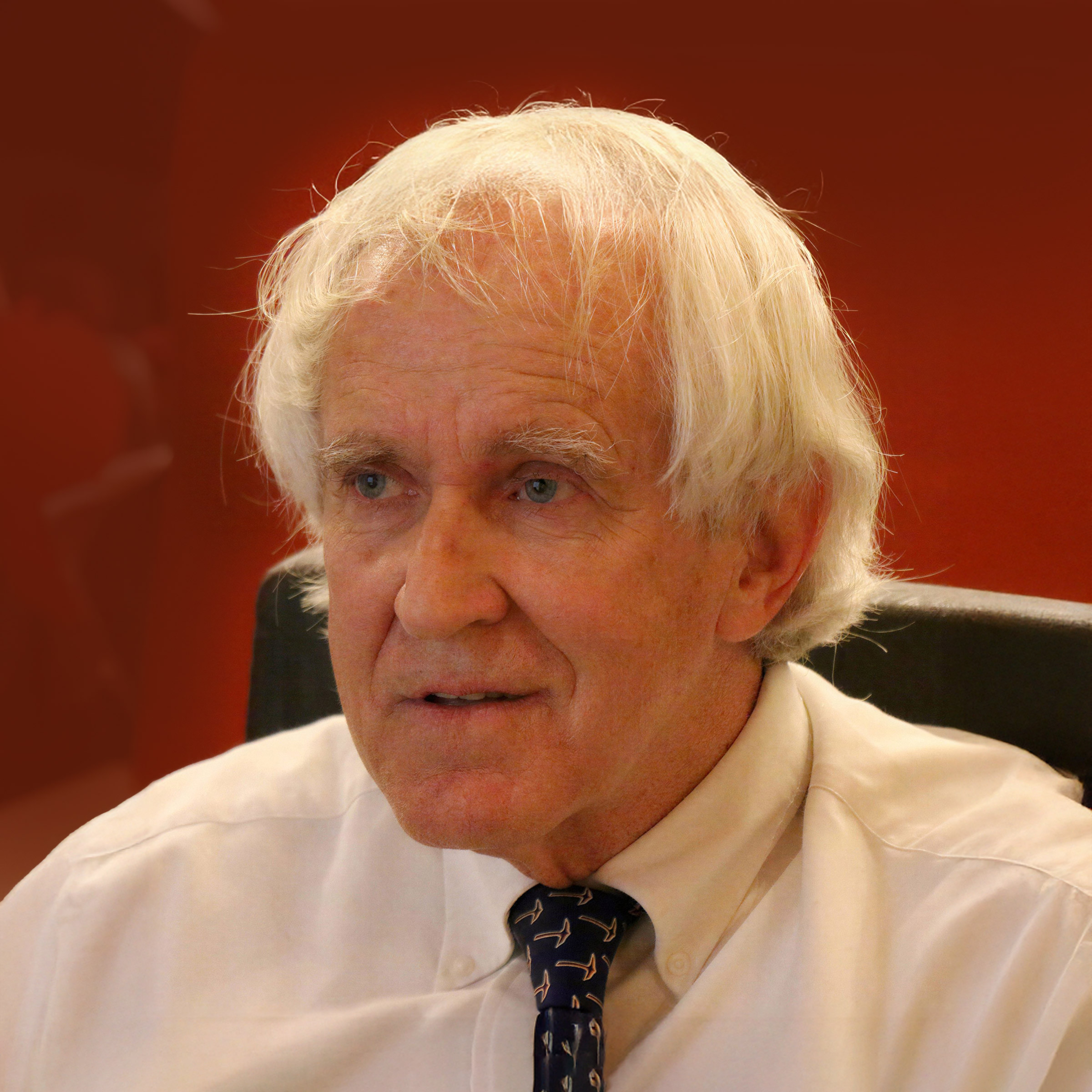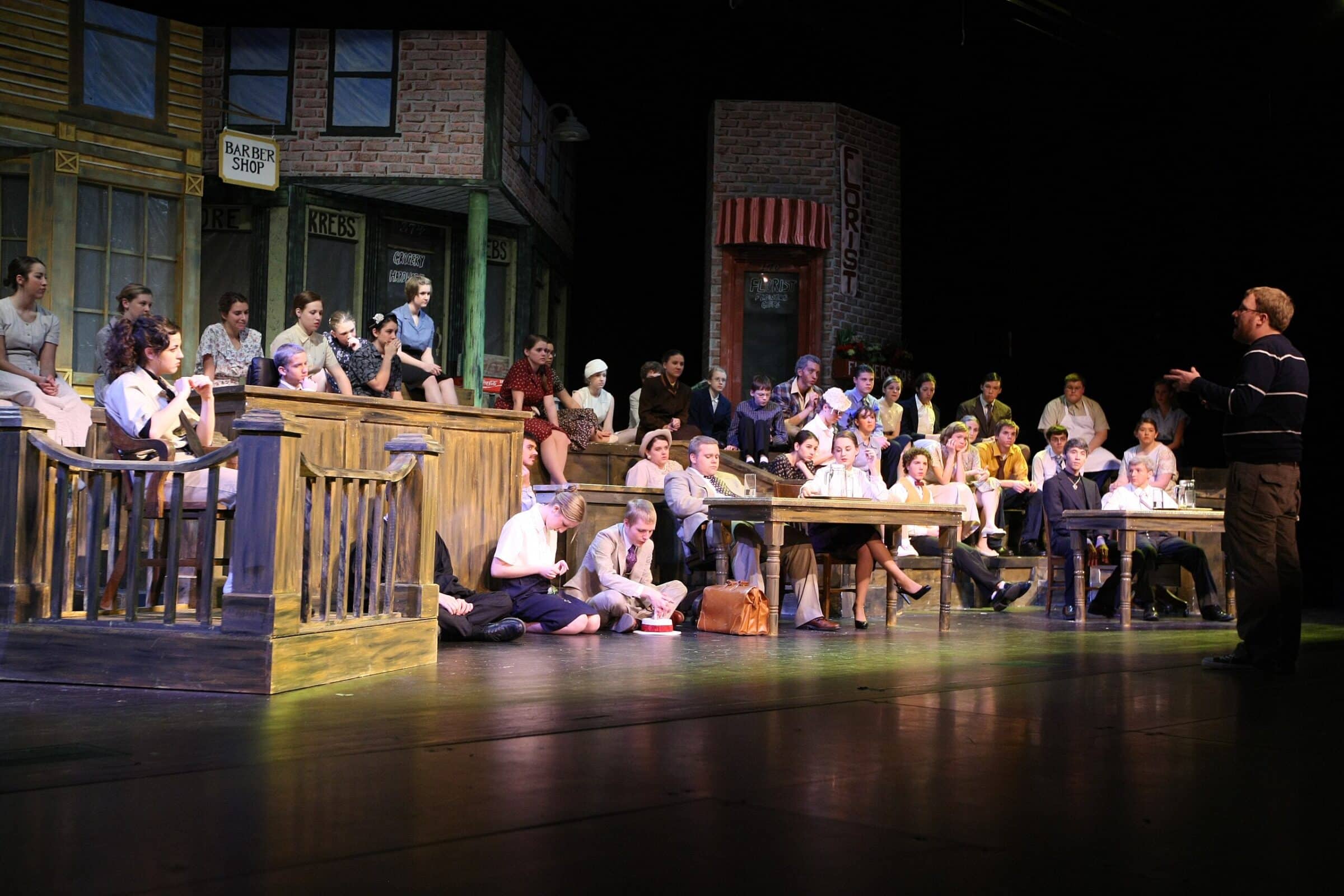Evolutionary icons can…evolve. It took decades, but eugenics toppled and fell. So did scientific racism and social Darwinism. Science journal editors hasten to apologize for the sins of their predecessors, calling these historical trends “misinterpretations” of Darwinism at best, and scandals at worst. Several of the ten Icons of Evolution analyzed by Jonathan Wells, though rising zombie-like from time to time (as Wells addressed in Zombie Science, adding six more icons), are on the way out. From my experience, reporters seem less hasty to print Haeckel’s embryos or four-winged fruit flies as evidence for Darwinian evolution, and the March of Man has become more of a cartoon meme than a serious depiction of human ancestry. The intelligent design movement is having an effect.
One of the last icons that must go is what Phillip Johnson called the “Inherit the Wind stereotype,” referring to the play and movie that mangled the story of the now century-old Scopes Trial. For decades, the movie was required viewing in many public schools. I remember seeing it in my high school. Later, I’ll suggest a way to turn the tables on that hoary indoctrination tool, but for now, consider the stark contrasts between the actual trial and the stereotype.
The Myth of Science Vs. Religion
There has been no shortage of scholarship debunking “science vs. religion” as the central myth at issue in the Scopes Trial. For instance, Edward Larson in Summer for the Gods (1997) and in his Teaching Company course “Theory of Evolution: A History of Controversy” emphasizes that “The Scopes Trial was never a normal criminal prosecution.” He describes how —
- For the civic leaders of Dayton, it was a way to get publicity and business back to their town that was suffering economically.
- For the ACLU, Clarence Darrow, and the liberal media, it was a means to express opposition to the rise of Christian “fundamentalists.”
- For William Jennings Bryan (an old-earth creationist and progressive Democrat), it was a way to assert the right of a majority of citizens to control education.
- For the obscure John Scopes, it was a boost to celebrity status, allowing him to travel to New York and Washington to speak against the Butler Act, even though he was not a biology teacher and never actually violated the law. The school board and superintendent supported his acceptance of the ACLU’s challenge and promised his job back if he lost. He never faced jail and the maximum penalty was $500. Though found guilty, the reduced fine of $100 was paid by H. L. Mencken.
- For the judge and jury, it was supposed to be a question of whether the Butler Act had been violated, not whether the law was a good one. In fact, Darrow asked the jury to find him guilty so that the sentence could be appealed. The Tennessee Supreme Court overturned the conviction on a technicality but upheld the statute as constitutional. Further appeal to the U.S. Supreme Court, therefore, was no longer an option.
Larson says that both sides were calling it the “Trial of the Century” before it even began. This “show trial” (the first to be broadcast on radio and telegraphed around the world), was a soap box for opposite religious views:
Both sides in the larger controversy saw the pending trial as an opportunity to make their case to the general public. Both Bryan and the ACLU lawyers… recognized this opportunity as an opportunity to make their case. Modernists and liberals, and fundamentalists and conservatives, saw this as a chance, because they knew the world would be watching. It became a show trial for all concerned.
Larson, Theory of Evolution, Lecture 9, American Crusade.
Both sides, ironically, argued for freedom. The conservatives argued that parents, through laws enacted by a majority of voters, have the freedom to control what students are taught. The modernists argued for the academic freedom of individuals: “freedom of teachers to teach what they thought was good science,” Larson says — debates still with us today. But like Casey Luskin wrote last week at The Daily Wire, a century later we have Scopes-in-reverse “where scientists and scholars face reprisals if they challenge neo-Darwinian evolution.” The liberals of 1925 have bequeathed to 21st-century science teachers a two-tiered concept of freedom: they are free to teach Darwin just-so stories and whatever woke, social-justice, or queer sexual theories they desire in science class, but dare not teach evolution alongside its weaknesses.
More Clarification on the Trial
For part of his 1968 book Evolution and Christian Faith, Bolton Davidheiser, a biology professor, dug through the records of the Scopes Trial and uncovered many shameless antics by lawyers for the defense and their witnesses, including scientists who could not even define evolution. For instance, before the judge forbade expert witnesses after Bryan complained they would merely be expressing opinions, Professor Maynard Metcalf of Johns Hopkins University, a famous biologist, took the stand. Asked to define evolution, he said,
Evolution, I think, means the change; in the final analysis I think it means the change of an organism from one character into a different character, and by character I mean its structure, or its behavior, or its function, or its method of development from the egg or anything else — the change of an organism from one set of characteristics which characterizes it into a different condition, characterized by a different set of characteristics either structural or functional, could properly be called, I think, evolution — to be the evolution of an organism. But the term in general means the whole series of such changes which have taken place during hundreds of millions of years, which have produced from lowly beginnings, the nature of which is not by any means fully understood, the organism of much more complex characteristics, whose structure and functions we are still studying, because we haven’t begun to learn what we need to know about them.
According to this definition, if you believe in the development of an adult from an egg, you are an evolutionist in spite of yourself. After expert witnesses were disallowed from testifying on the stand, Professor Horatio Hockett Newman of the University of Chicago was able to include his definition of evolution in the court record. His either-or fallacy added to the equivocation over the meaning of evolution:
Evolution is merely the philosophy of change as opposed to the philosophy of fixity and unchangeability. One must choose between these alternative philosophies, for there is no intermediate position: once admit a changing world and you admit the essence of evolution.
Under this definition, a change in weather illustrates evolution, as does an individual growing up.
Numerous Personal Insults
Credible “science” presented by the defense in support of evolution was seriously lacking. So was civility. Davidheiser recounts numerous personal insults levied by Darrow and the defense against William Jennings Bryan and the press in contrast to Bryan’s dignified and professional courtesy toward his opponents. For instance, in the closing days of the trial, liberal New York lawyer Dudley Field Malone gave a passionate speech attacking Bryan. Davidheiser describes the climax and aftermath:
“We do not fear all the truth they can present as facts. We are ready. We stand with progress. We stand with science. We stand with intelligence. We feel that we stand with the fundamental freedoms in America. We are not afraid. Where is fear? We defy it!” Turning and pointing a finger at William Jennings Bryan, he cried, “There is fear!” According to a report, “the crowd went out of control — cheering, stamping, pounding on desks — until it was necessary to adjourn for fifteen minutes to restore order.”
The media circus at the end of the trial when Darrow got Bryan to agree to take the stand, though utterly irrelevant to the Butler Act or the case, lives on in the portrayal in Inherit the Wind, staged as it was to showcase “science vs. religion” as the centerpiece of the Scopes Trial. The movie makes Bryan look like a bumbling fool but ignores Darrow’s changing the subject from the issue of the case to supposed errors in the Bible. It also ignores Darrow’s shameless ignorance about the Bible in his bluffing list of its alleged scientific errors.
“Are your mathematics good? Turn to I Elijah 2.” [There is no such passage in the Bible.] “Is your philosophy good? See II Samuel 3.” [This chapter is a historical account of events during the time of David.] “Is your astronomy good? See Genesis chapter 2 verse 7.” [This passage has nothing to do with astronomy.] “Is your chemistry good? See — well, chemistry — see Deuteronomy 3:6 or anything that tells about brimstone.” [This verse has nothing to do with chemistry or brimstone.]
At one point, Darrow said, “You insult every man of science and learning in the world because he does not believe in your fool religion.”
Bryan never retaliated against these insults. He tried in vain to keep the discussion on the issue of the trial. He died a week after the trial ended. Larson thinks the stress of the trial along with the oppressive heat in Dayton contributed to his demise.
Solving the Inherit the Wind Stereotype: De-Inhibit the Mind
While scholars and book authors have roundly debunked the many and egregious misrepresentations of the Scopes Trial, the corrections have not yet reached the public. Schools and teachers continue to show Inherit the Wind in movie form and sometimes re-enact the play (as in the photo at the top). Its factual inaccuracies cannot be excused by calling it a fictional portrayal and changing the names of the characters. Everybody knows what it is about.
So here is my solution: show it more! But show it like high schools and colleges occasionally show Birth of a Nation in class, as an illustration of the ugliness of early 20th-century racism. Read the quotes from Civic Biology in support of eugenics. Show Human Zoos. Let students understand the thinking of scientific racists of the 20th century. Let them feel the assumptions that led to Social Darwinism, two world wars and the Holocaust. Don’t hide these facts of history. Inoculate students against the terrors that result from bad ideas by exposing them to the whole truth: what Darwin taught, what his followers accepted, how his ideas were framed, and what the consequences were. They may need this education to confront the rise of a new eugenics in our time.
Censorship is the tactic of our opponents. Let’s teach more evolution! But teach it all, without whitewashing its weaknesses, in the full light of science and history.









































